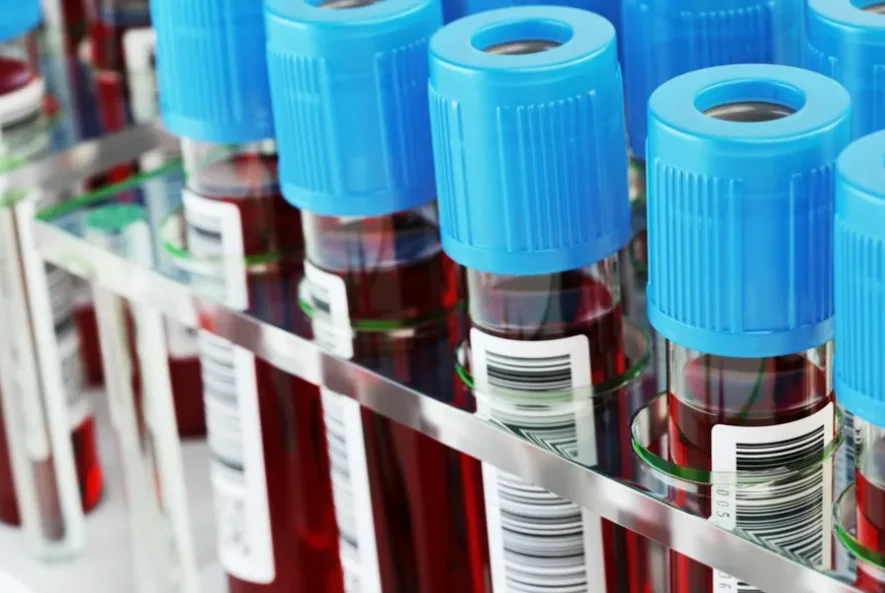
Blood tests are one of the most common and essential diagnostic tools in modern medicine. They can provide a detailed snapshot of your overall health, offering vital clues about the function of your organs, the presence of infections, and even potential chronic conditions. Whether it’s part of a routine check-up or being conducted to investigate specific symptoms, blood tests can reveal much more about your health than you might think. In this guide, we’ll walk you through the different components of a blood test and explain what your results can tell you.
What is a Blood Test?
A blood test involves drawing a sample of blood, usually from a vein in your arm, which is then analyzed in a lab. Depending on the type of test, the blood sample can reveal important information about your organs, tissues, and cells. Blood tests help doctors diagnose conditions, monitor existing health issues, and check the effectiveness of treatment plans. They provide critical data on everything from infection and inflammation to vitamin deficiencies and hormone imbalances.
Common Types of Blood Tests and What They Reveal
- Complete Blood Count (CBC)
- What It Is: A CBC is one of the most common blood tests and provides a detailed overview of your overall health by measuring various components of your blood, including red blood cells (RBCs), white blood cells (WBCs), hemoglobin, hematocrit, and platelets.
- What It Reveals:
- Anemia: Low RBC count or low hemoglobin levels can indicate anemia, a condition where you don’t have enough healthy red blood cells to carry oxygen throughout the body.
- Infection or Inflammation: A high WBC count can point to an infection or inflammation in your body.
- Blood Disorders: Abnormal platelets can suggest clotting disorders or other blood-related issues.
- Dehydration: High hematocrit levels may indicate dehydration.
- Basic Metabolic Panel (BMP)
- What It Is: A BMP measures your blood glucose level, calcium levels, and the health of your kidneys, muscles, and bones. It includes tests for sodium, potassium, carbon dioxide, and chloride.
- What It Reveals:
- Kidney Function: Abnormal levels of certain minerals (like potassium or calcium) can indicate kidney problems or dehydration.
- Electrolyte Imbalances: It can detect imbalances in sodium, potassium, or chloride that affect heart, nerve, and muscle function.
- Blood Sugar Levels: High glucose levels may indicate diabetes or prediabetes.
- Lipid Profile (Cholesterol Test)
- What It Is: A lipid profile measures the levels of different types of cholesterol in your blood, including LDL (bad cholesterol), HDL (good cholesterol), and total cholesterol.
- What It Reveals:
- Heart Disease Risk: High levels of LDL cholesterol and low levels of HDL cholesterol can increase the risk of heart disease and stroke.
- Liver Function: An abnormal lipid profile can also point to liver problems, as the liver plays a key role in metabolizing cholesterol.
- Liver Function Tests (LFTs)
- What It Is: LFTs are a series of blood tests that measure the levels of enzymes and proteins produced by your liver, including ALT, AST, alkaline phosphatase, and bilirubin.
- What It Reveals:
- Liver Damage or Disease: Elevated enzyme levels may indicate liver disease, liver damage, or liver inflammation (such as hepatitis).
- Bile Duct Problems: High bilirubin levels can point to bile duct blockages or liver dysfunction.
- Alcohol or Medication Effects: Excessive alcohol use or certain medications can also affect liver function, which can be detected through these tests.
- Thyroid Function Tests
- What It Is: Thyroid tests measure the levels of thyroid hormones in your blood, including TSH (Thyroid Stimulating Hormone), T3, and T4.
- What It Reveals:
- Hypothyroidism: Low T3 and T4 levels, along with high TSH, can indicate an underactive thyroid (hypothyroidism), which can cause fatigue, weight gain, and depression.
- Hyperthyroidism: High T3 and T4 levels, along with low TSH, can indicate an overactive thyroid (hyperthyroidism), which can lead to symptoms such as weight loss, anxiety, and irregular heart rate.
- Hemoglobin A1C Test
- What It Is: This test measures your average blood sugar levels over the past 2-3 months. It’s primarily used to diagnose and monitor diabetes.
- What It Reveals:
- Diabetes and Prediabetes: An A1C level of 6.5% or higher may indicate diabetes, while levels between 5.7% and 6.4% may indicate prediabetes.
- Vitamin and Mineral Tests
- What It Is: Blood tests can also measure the levels of various vitamins and minerals, such as Vitamin D, Vitamin B12, and iron.
- What It Reveals:
- Nutrient Deficiencies: Low levels of vitamins and minerals can suggest deficiencies that might affect your overall health. For example, low Vitamin D levels are common in individuals with bone health issues, while a Vitamin B12 deficiency can lead to anemia and neurological problems.
- C-reactive Protein (CRP) Test
- What It Is: The CRP test measures the level of C-reactive protein in your blood, which increases in response to inflammation.
- What It Reveals:
- Chronic Inflammation: Elevated CRP levels can indicate inflammation in the body, which may be associated with conditions like rheumatoid arthritis, heart disease, or infections.
- Heart Disease Risk: High CRP levels are linked to an increased risk of heart attack or stroke.
What Blood Test Results Can Tell You About Your Health
Blood test results can provide valuable information about various aspects of your health:
- Infections: A high WBC count may indicate an ongoing infection, while low levels may suggest a weakened immune system.
- Chronic Conditions: Tests like cholesterol panels, A1C, and kidney function tests help in managing chronic conditions like diabetes, hypertension, and heart disease.
- Nutritional Deficiencies: Blood tests can reveal deficiencies in essential vitamins and minerals, guiding you to make dietary changes or take supplements.
- Organ Health: Liver function tests, kidney function tests, and thyroid function tests help monitor the health of critical organs.
- Inflammation and Autoimmune Conditions: High levels of CRP or specific antibodies can indicate an autoimmune disease or chronic inflammation.
When to Get a Blood Test
Regular blood tests are an essential part of preventive healthcare. You should consider getting a blood test if:
- You are due for a routine check-up.
- You have a family history of chronic diseases (such as diabetes or heart disease).
- You are experiencing symptoms like fatigue, unexplained weight changes, or persistent pain.
- You are monitoring an existing condition (like high blood pressure or diabetes).
- Your doctor recommends it for screening purposes based on your age, lifestyle, or risk factors.
Conclusion: Blood Tests as a Window to Your Health
Blood tests are a powerful tool in maintaining your health and well-being. By offering detailed insights into your body’s functions, they can help identify issues early on, leading to better outcomes and more effective treatments. Whether you’re concerned about a specific health issue or simply want to stay on top of your health, regular blood tests are an essential part of proactive healthcare.
Schedule your blood test today at our diagnostic center and take control of your health!









